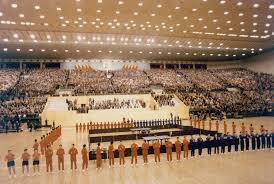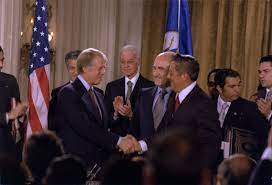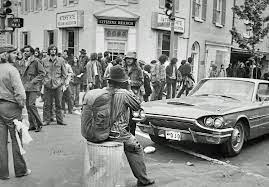In 1971, an unexpected and groundbreaking event took place that would forever change the course of diplomatic relations between the United States and China: Ping Pong Diplomacy. This unique form of sports diplomacy, which involved a friendly exchange of table tennis players between the two nations, helped pave the way for the historic normalization of relations between the United States and China, marking a significant turning point in the Cold War era and opening up new opportunities for cooperation and dialogue.
The origins of Ping Pong Diplomacy can be traced back to the early 1970s, when tensions between the United States and China were at an all-time high. The two countries had been estranged for over two decades, with no formal diplomatic relations and limited communication channels. Against this backdrop of hostility and suspicion, a chance encounter between American and Chinese table tennis players at the 31st World Table Tennis Championships in Nagoya, Japan, set the stage for a remarkable diplomatic breakthrough.
During the tournament, American player Glenn Cowan missed his team bus and was offered a ride by a Chinese player, Zhuang Zedong, leading to an impromptu exchange of gifts and friendly gestures between the two athletes. This simple act of sportsmanship and camaraderie caught the attention of both the American and Chinese delegations, sparking a series of exchanges and invitations that culminated in a historic visit by the Chinese national table tennis team to the United States in April 1972.
The visit of the Chinese table tennis team to the United States was met with great enthusiasm and curiosity by the American public, as the athletes toured the country, played exhibition matches, and interacted with American fans and officials. The visit helped to humanize the Chinese people in the eyes of the American public and build bridges of understanding and friendship between the two nations. The Chinese players were warmly received and treated as goodwill ambassadors, showcasing the power of sports to transcend political differences and foster mutual respect and cooperation.
Ping Pong Diplomacy had a profound impact on the diplomatic landscape of the time, as it paved the way for a series of high-level exchanges and negotiations between the United States and China. In July 1971, U.S. National Security Advisor Henry Kissinger made a secret visit to Beijing to lay the groundwork for a possible rapprochement between the two countries. This visit set the stage for President Richard Nixon's historic visit to China in February 1972, where he met with Chinese Premier Zhou Enlai and Chairman Mao Zedong, marking the first time a U.S. president had visited China since the founding of the People's Republic in 1949.
The normalization of relations between the United States and China in 1972 was a watershed moment in international diplomacy, as it signaled a significant shift in the global balance of power and opened up new avenues for cooperation and dialogue between the two superpowers. The legacy of Ping Pong Diplomacy continues to resonate today, as a shining example of the power of sports to build bridges between nations, promote understanding and goodwill, and transcend political differences for the greater good of humanity.






